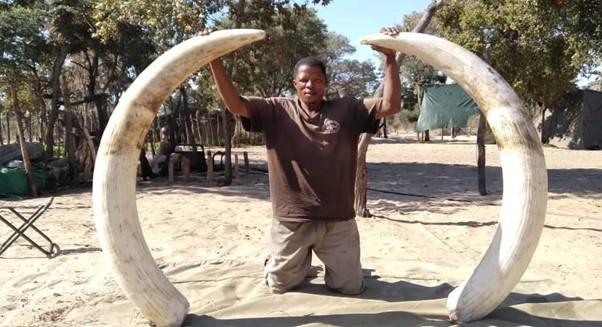Botswana’s approach to wildlife management, particularly through regulated elephant hunts, has been a topic of global discussion. While some question the ethics of hunting, it remains an integral part of the country’s conservation strategy. Understanding how elephant hunts in Botswana contribute to conservation sheds light on this complex but effective model.
[DYNAMIC-BLOGTABLEOFCONTENT]
Botswana’s Elephant Population: An Overview
Botswana is home to the largest elephant population in Africa, with over 130,000 elephants roaming its landscapes. While this is a testament to the country’s conservation success, it also presents challenges.
Key Challenges
- Overpopulation: High elephant densities in certain areas lead to habitat degradation, affecting other species and ecosystems.
- Human-Wildlife Conflict: Elephants often venture into farmland, destroying crops and threatening livelihoods.
- Economic Strain: Managing large wildlife populations requires significant financial resources.
The Role of Regulated Elephant Hunts
Regulated elephant hunts in Botswana are designed to address these challenges while supporting conservation goals.
Here’s how:
1. Generating Revenue for Conservation
Hunting permits generate substantial income. This revenue funds:
- Anti-poaching initiatives
- Wildlife monitoring programmes
- Habitat restoration projects
By reinvesting funds into conservation, Botswana ensures the long-term survival of its wildlife.
2. Population Management
Targeting older, non-breeding bulls helps maintain a balanced elephant population. This reduces pressure on habitats and minimises conflict with humans.
3. Supporting Local Communities
Elephant hunts provide economic opportunities for rural communities. Benefits include:
- Job creation in guiding and hospitality
- Revenue-sharing programmes that support local development
- Meat distribution from harvested elephants
When communities see tangible benefits, they are more likely to support conservation efforts.

Ethical Considerations
Ethics play a significant role in Botswana’s hunting policies. The government has implemented strict regulations to ensure sustainability and minimise harm.
Key Regulations
- Strict Quotas: Hunting permits are issued based on scientific population data.
- Targeted Hunts: Only specific animals, such as older bulls, are allowed to be hunted.
- Professional Oversight: Licensed guides ensure compliance with ethical practices.
These measures ensure that elephant hunts are conducted responsibly, balancing ecological, economic, and ethical considerations.
Success Stories
Botswana’s approach has yielded tangible results:
1. Reduced Human-Wildlife Conflict
In areas with regulated hunting, incidents of crop destruction and property damage have decreased. This has improved relationships between communities and wildlife management authorities.
2. Increased Conservation Funding
Revenue from hunting permits has bolstered anti-poaching efforts, leading to a decline in illegal hunting activities.
3. Community Empowerment
Programmes that involve local communities in wildlife management have enhanced their economic stability and conservation awareness.

Balancing Conservation and Hunting
Striking a balance between conservation and hunting is not without challenges. However, Botswana’s model demonstrates that these two goals can coexist when managed effectively.
Challenges
- Public Perception: Hunting is often misunderstood, leading to criticism from international audiences.
- Regulatory Enforcement: Ensuring compliance across vast landscapes can be difficult.
- Climate Change: Changing environmental conditions affect habitats and wildlife behaviour.
Future Strategies
Botswana continues to refine its approach by:
- Increasing community involvement in decision-making
- Enhancing transparency in revenue distribution
- Investing in alternative conservation funding, such as eco-tourism
How You Can Support Botswana’s Conservation Efforts
Supporting conservation in Botswana doesn’t necessarily mean participating in hunting. There are several ways to contribute:
- Visit Ethical Wildlife Destinations: Choose eco-tourism operators that support conservation initiatives.
- Donate to Conservation Organisations: Reputable groups work closely with Botswana’s government and local communities.
- Advocate for Balanced Policies: Share information about Botswana’s approach to promote understanding and support.
Conclusion
Elephant hunts in Botswana are more than just a regulated activity; they are a cornerstone of the country’s conservation strategy. By addressing overpopulation, generating revenue, and involving local communities, these hunts play a crucial role in preserving both wildlife and livelihoods. While challenges remain, Botswana’s model offers valuable lessons for balancing conservation and human development. Through continued refinement and global support, it ensures a sustainable future for elephants and the ecosystems they inhabit.
